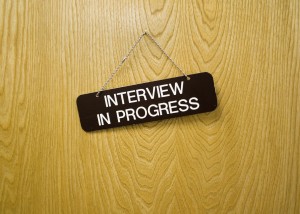Happy December, everyone! It’s that time of year again – it gets harder to find a table in the library, the circles under students’ eyes grow ever darker, and many professors assign an in-class presentation. Public speaking! The number one fear in America! As someone who just gave a huge presentation – defending my thesis topic to a roomful of peers and professors in my department – I want to give a few tips on what (and what not) to do.
Speak slower. You may think you’re speaking at a normal pace, but if you’re nervous – regardless of how much you know the subject or how prepared you are – your heart rate will increase and so will the speed with which you speak. Pretend you’re talking to someone who’s having a little trouble hearing you – speak loudly, clearly, and enunciate.
Prepare for technical difficulties. Something is going to mess up – it’s bound to happen. Your PowerPoint won’t open, your notes won’t show, the link you embed won’t work. Think about everything that could possibly go wrong, and have a backup plan so you’re not flustered and at a loss in front of the group.
Fake it till you make it. I was one of about twenty students presenting last night, and the ones who left the best impression on me were the ones who spoke calmly and confidently about their topics and who responded to questions thoughtfully – even though I knew they were terrified. Then, there were the other ones – students who raced through their presentations, whose hands and voices shook, and who blurted out defensive answers to the questions and criticism. Feeling terrified? Get up there and pretend (or realize) that you know exactly what you’re talking about. Even if you don’t, it’ll calm you down. Ye said it best: My presence is a present. Be confident!
Improvise. Maybe the audience is getting restless, or maybe you’re running out of time and haven’t gotten to your main point. Have a few notes in your script – points you can cut out, if need be, or things you can expand upon. Read your audience and adjust accordingly. They’ll enjoy the presentation a lot more, and you’ll look like an adaptive presentation pro.
tl;dr? The gist of this list: prepare in advance. Write out a script, and decide what can be cut out and what can be expanded upon depending on how your time is going. Run through your technology and decide what you’ll do if it doesn’t work. Make yourself read your script out loud, at least three times – not only will you be able to time yourself for length (remember that you may speed up out of nerves), but you’ll be able to hear how your presentation flows. Happy presenting!


